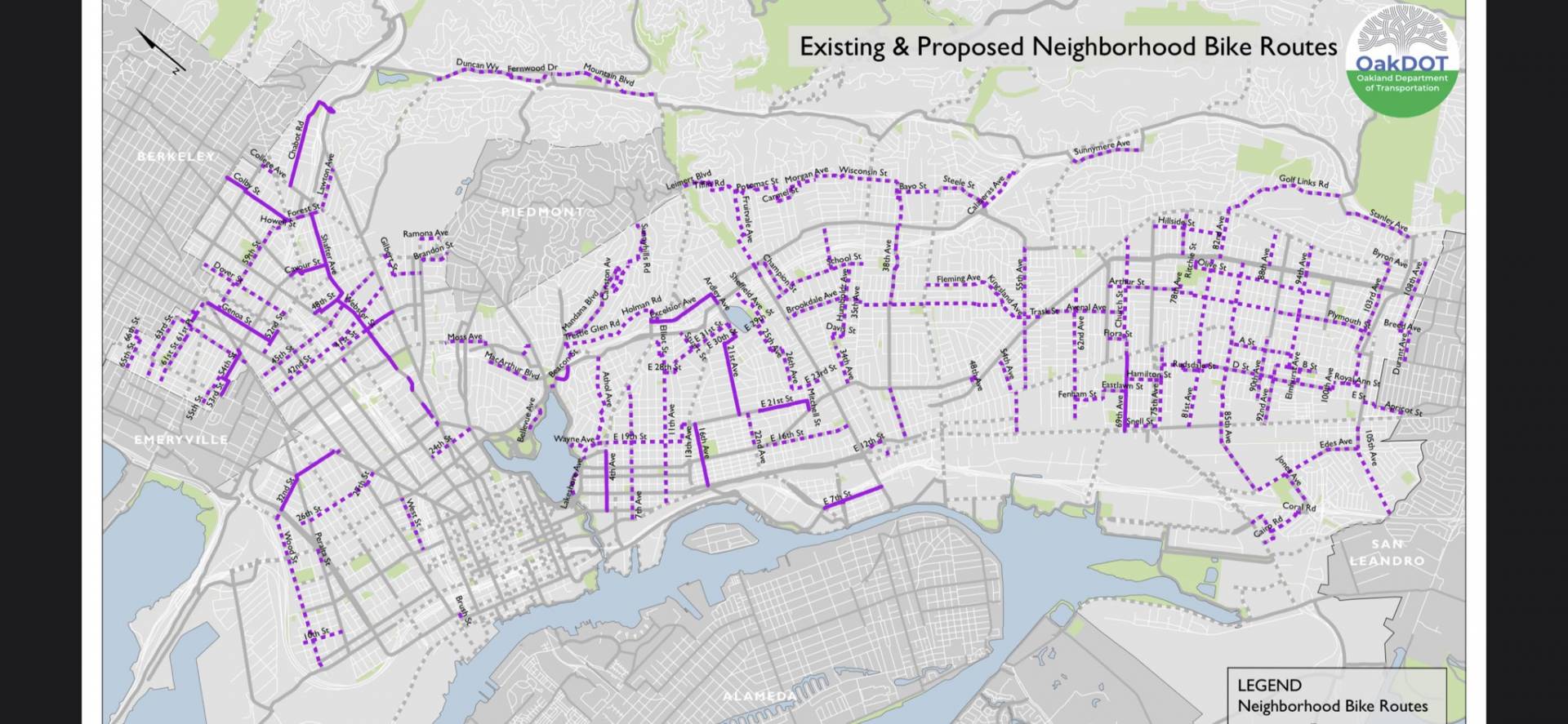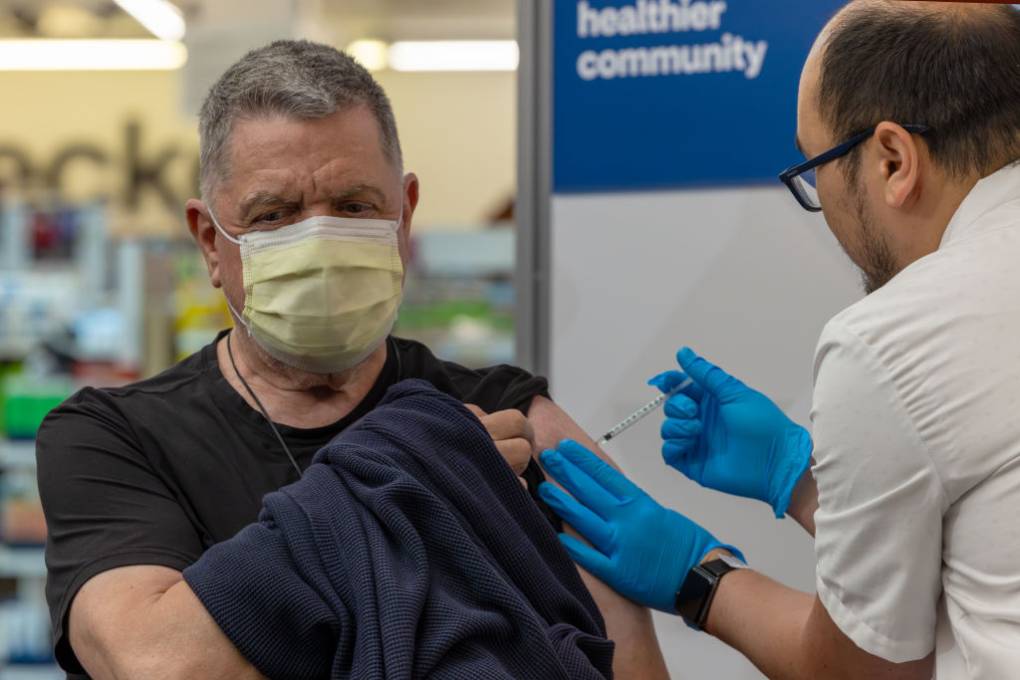Now's a good time to find that old box of sidewalk chalk.
Oakland will begin to close 74 miles of its blacktop to cars starting Saturday, reserving roughly 10% of all streets in the city for pedestrians and bicyclists, as part of an effort to encourage social distancing and ease crowding in public spaces during the city's ongoing shelter-in-place order.
"We are giving Oaklanders more room to spread out safely," Mayor Libby Schaaf said Friday at a press conference in the Fruitvale District. "It's also a message to drive slowly and cautiously. We have got to eliminate car accidents. We have got to keep our health system open and ready for a surge that we believe is coming due to the coronavirus pandemic."
Click the image below for a larger version.

Located on all existing or proposed neighborhood bike routes, the proposed streets cut a wide swath across the city, running through just about every neighborhood, based on a map Schaaf displayed during a virtual town hall Thursday night. While the streets will be closed to through traffic, Schaaf noted that local residents and essential workers will still be allowed to drive in an out and said the city was not planning to ticket violators.
Schaaf did not elaborate on how the city planned to enforce the measure.


